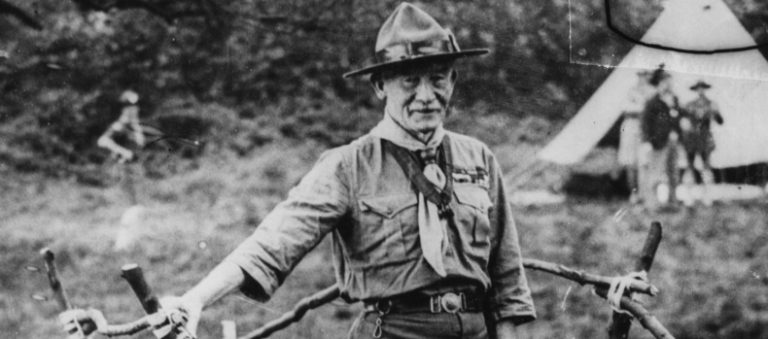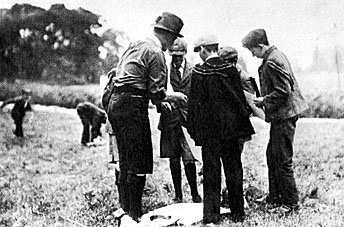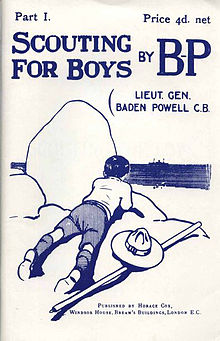
Without everyday adventures, the world would certainly be a less interesting place, and if it wasn’t for the talent and originality of one man, the Scout Movement might never have existed at all.
This man was Robert Baden-Powell (1857–1941), a soldier, artist, actor and free-thinker. Best known for his spirited defence of the small South African township of Mafeking during the Boer War, he was propelled to further fame as the Founder of Scouting.
Inspired during the siege of Mafeking by the initiative shown by boys under pressure, Baden-Powell (BP) realised that young people had huge potential that was often left untapped.
“The spirit is there in every boy; it has to be discovered and brought to light.”
Lord Robert Baden-Powell
Returning home in 1903, he found that he had become a national hero. He also found that the small handbook he had written for soldiers (‘Aids to Scouting’) was being used by youth leaders and teachers all over the country to teach observation and woodcraft.
Already thinking of developing a training programme for young people in Britain, he was encouraged by friends to rewrite his handbook for soldiers (Aids to Scouting) for this younger audience.
The Brownsea Island camp
In 1907 Baden-Powell held a camp on Brownsea Island in Poole, Dorset, to try out his ideas and brought together 20 boys from a variety of backgrounds. The success of the camp spurred him on to finish what would become a classic book of the 20th century.

‘Scouting for Boys’ was published in 1908 in six fortnightly parts at 4d a copy. What had been intended as a training aid for existing organisations became the handbook of a new Movement, which secured the royal seal of approval the following year when King Edward VII agreed to the introduction of the King’s Scout Award.

In its first census in 1910, Scouting had almost 108,000 participants; over 100,000 were young people.
Scouting for all ages
It was a global phenomenon. As numbers grew, it soon became clear that young people of all ages and in every country wanted to get involved in Scouting. Wolf Cubs came along for younger Scouts in 1916, followed four years later by Rover Scouts for an older age range.
1920 was also the year of the first World Scout Jamboree. At London’s Olympia, Scouts from across the world gathered to celebrate international unity and the growth of their great Movement.
Lord Baden-Powell died in 1941 but his legacy continues today. Still, in the 21st Century, Scouting is synonymous with adventure, integrity and global friendship.
“Try and leave this world a little better than you found it and when your turn comes to die, you can die happy in feeling that at any rate you have not wasted your time but have done your best. ‘Be Prepared’ in this way, to live happy and to die happy — stick to your Scout Promise always — even after you have ceased to be a boy — and God help you to do it.”
B-P













